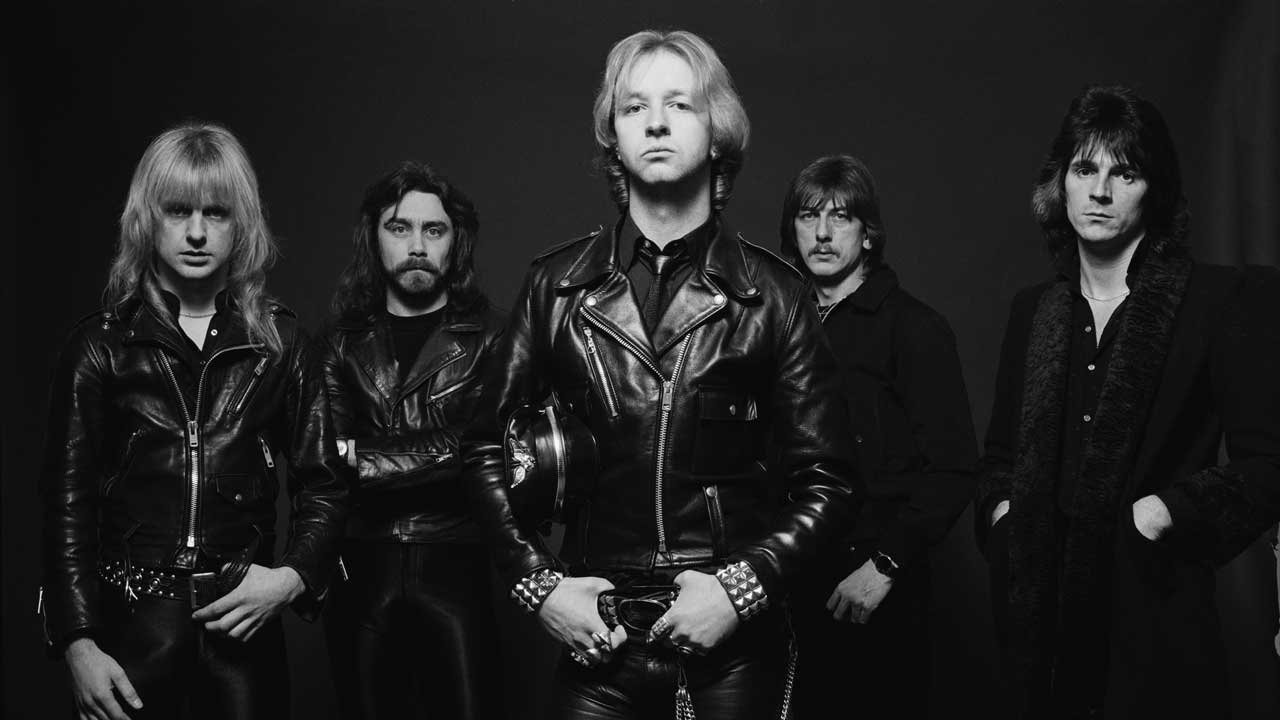Breaking The Law, a song performed countless times around the world in such sun-kissed places as Rio, Texas and Honolulu, began its life on a drizzly day in a farmhouse in Staffordshire, when Judas Priest guitarist Glenn Tipton got the idea for the song.
While Priest were working on their 1980 album British Steel, Tipton took the basic framework of the song to his writing partners – vocalist Rob Halford and guitarist KK Downing – who helped with the final arrangement’s balance of crunching guitars, metronome drums and bellow-your-lungs-out chorus.
“It turned out to be one of the all-time classic metal riffs,” Halford says, casting his mind back. “As I recall, the bulk of the song was conceived when we were at Ringo Starr’s old house, recording the album. Great as the music was, the lyrics had their place. And they just arrived out of thin air. Breaking the law: where on earth did that come from? I haven’t a clue. But it tapped into an angst that Priest had never really covered until that point.”
Nevertheless, Halford easily immersed himself in the hob-nailed boots of the song’s desperate lead character, relishing the prospect of roaring: ‘You don’t know what it’s like/You don’t have a clue/If you did you’d find yourself/Doing the same thing too.’
“We all came from tough working-class backgrounds; Walsall and West Bromwich were pretty bleak parts of Birmingham in those days,” he offers. “We could all relate to the need and the want of trying to break out of an unpleasant cycle.”
Ringo’s aforementioned gaff, Tittenhurst Park, was previously owned by John Lennon, and his Imagine was recorded in its White Room. Priest and producer Tom Allom had rowdier things in mind, including making use of various on-site props during the sessions. It was Allom’s idea to smash a milk bottle and mix it in alongside a police siren.
“We threw bottles against the wall after we’d had a few,” Halford chuckles. “We used a billiard cue as scythes, and rattled trays of cutlery in Metal Gods, also slapping a piece of microphone cable for whipping sounds.”
It was Columbia Records who suggested Breaking The Law should be the second single from British Steel. The label also agreed to finance what turned out to be one of the most comical heavy metal videos of all time.
“We were delighted when the song kicked up enough dust for them to take it to the next level,” Halford recalls of what became Priest’s joint-highest-charting single in the UK (along with Living After Midnight from the same album).
In the ludicrous, Julien Temple-produced video Priest dress up as vicars and attempt to rob a bank, using guitars as weapons, and making their getaway on the flyover past what was then Hammersmith Odeon.
“MTV was just about to become enormous, and we understood that enough to make use of it,” Halford says. “If we’d stuck with the song’s exact lyrical content for the video it’d have fallen flat on its face.”
Because of its crossover appeal and old- school metal credentials, Breaking The Law is he one Judas Priest song that just about every metal fan knows. Halford insists that he’s comfortable with the band being most famous for one of their more pantomime moments. “Poking fun at yourself has always been a very British way.”
Having sung Breaking The Law on and off for more than four decades – including at Judas Priest's Rock And Roll Hall Of Fame induction in 2022 – nor has he become even remotely sick of it.
“No, never at all,” he says, dismissing the very suggestion. “Every night it’s a tiny bit different to any other, and I still get a massive adrenalin rush on hearing those twin guitars fire up. It’s also a great crowd participation number. Everyone’s had a confrontation with a copper and likes to scream about breaking the law, don’t they?”
The original version of this feature appeared in Classic Rock 98, in October 2006.

